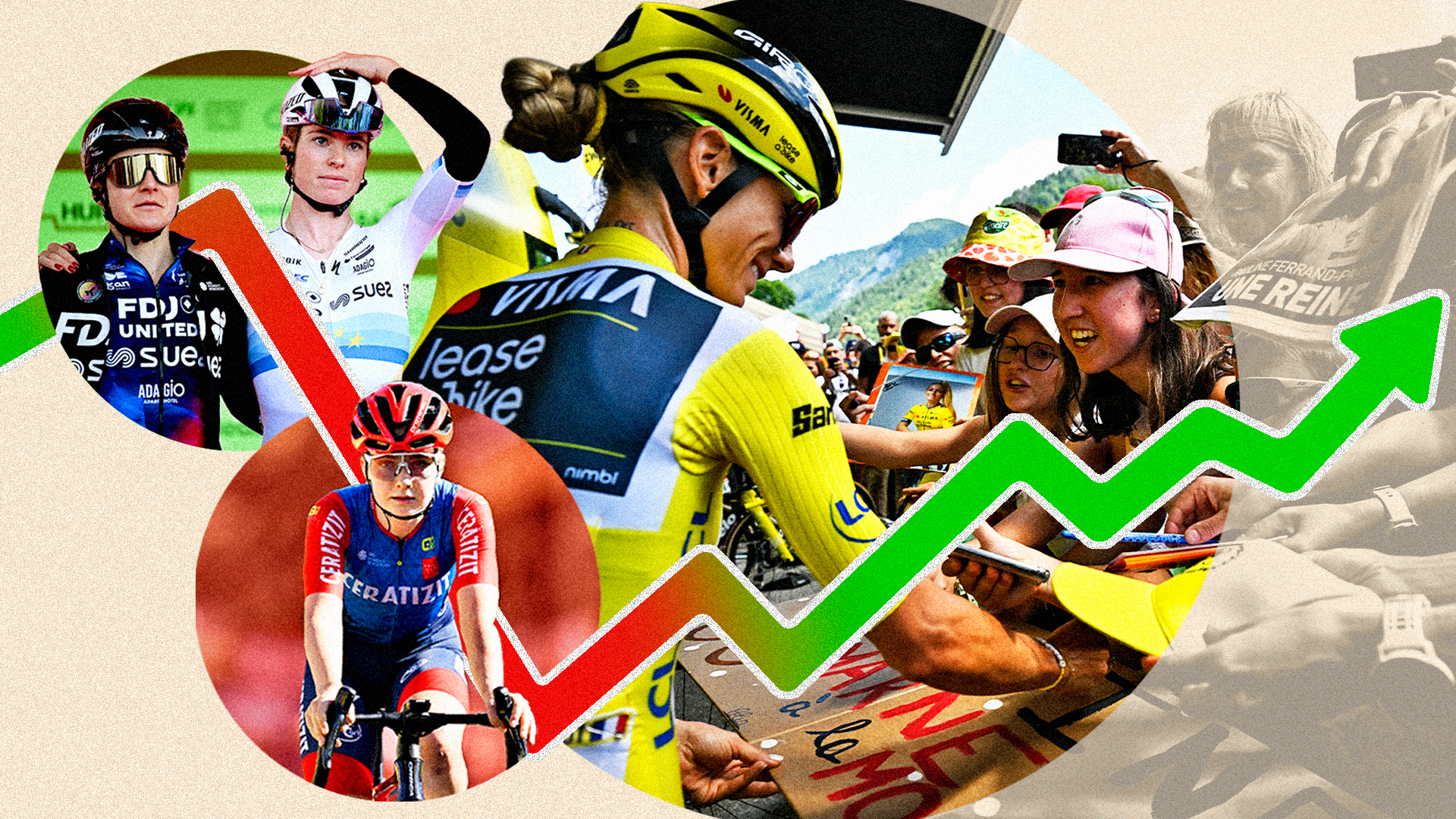Contador claims third Vuelta a España title
Spaniard surprised by his own success after Tour de France crash
The latest race content, interviews, features, reviews and expert buying guides, direct to your inbox!
You are now subscribed
Your newsletter sign-up was successful
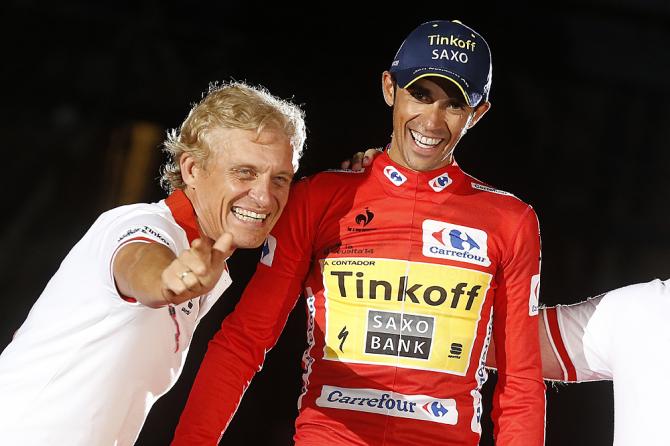
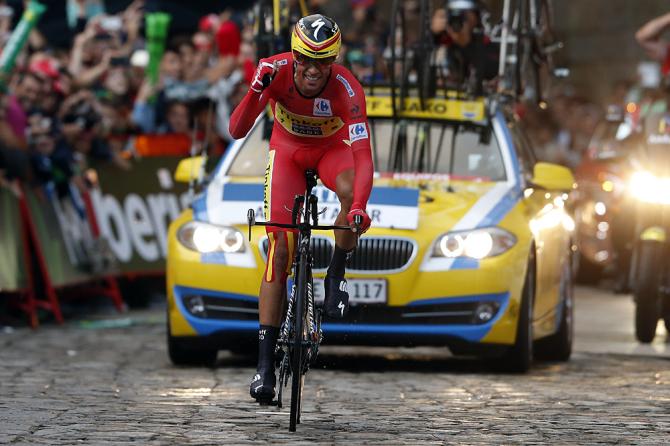
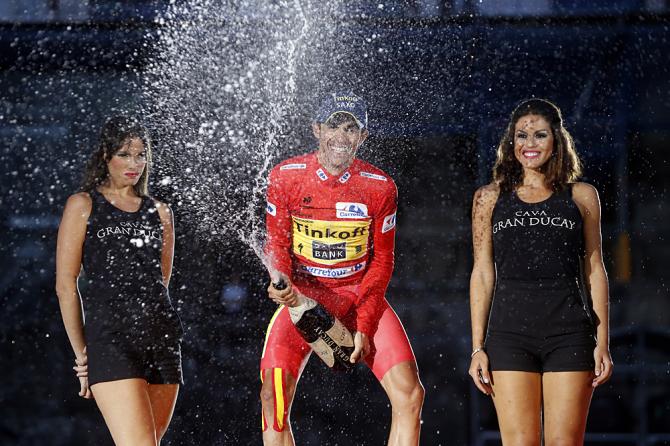
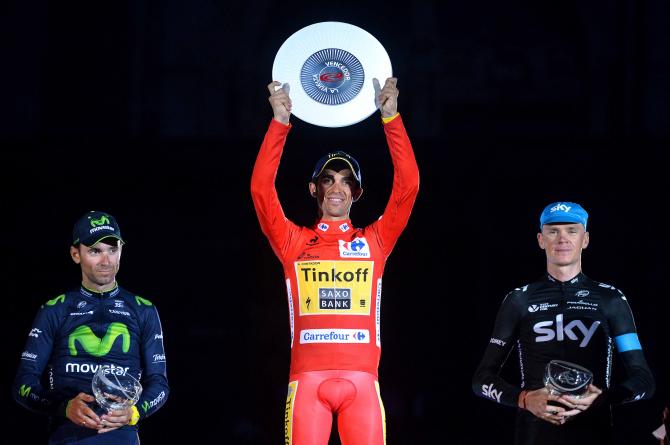
Two months to the day since Alberto Contador crashed out of the Tour de France with a broken tibia, he stood triumphant in the Plaza do Obradoiro a stone’s throw away from the Santiago de Compostela cathedral, celebrating his third Vuelta a España win.
His Tour injury was initially something that he didn't think would stop him from racing the Vuelta but he said "things began to go wrong [in the healing process] and I thought it was all over. A month ago, I certainly didn’t think about winning.
“So I’m very pleased with this win, getting this third win in the Vuelta is a dream come true. It’s something I didn’t expect at all.”
Contador has raced the Vuelta three times - and he has won each time, in 2008 after winning the Giro d’Italia, in 2012 after his suspension had ended just a few days earlier, and in 2014 after his crash in July.
“Over these last two months I’ve had a lot of days when I’ve had a hard time keeping my morale up, days when I was full of hope and others not so much, but either way I didn’t want to end my season by crashing out.”
He had nothing but praise for the fans, saying, “the public has spurred me on, they’ve been incredible, they gave me the strength to get to where I am today. This victory belongs to them.
“Every village I went through, there were posters and banners supporting me.
The latest race content, interviews, features, reviews and expert buying guides, direct to your inbox!
“The team has done an incredibly good job too. There were lots of questions [in the media] about whether they were strong enough but in fact without them, it would have been impossible to do what I did.”
Asked how he had managed to turn around what seemed like a definitive setback for 2014 into a triumph, Contador said “I thought about a phrase I have used and said a lot of times, which is querer es poder.” - a Spanish phrase similar to the English phrase, ‘where there’s a will, there’s a way.’
“There are some people who might have thought of it as mission impossible, but I did everything possible to try and recover. It’s true that I never thought of coming back to the Vuelta in top shape from the word go but fortunately Grand Tours are events that you can race yourself into, and that I could build up my form, day-by-day.
“The first day that I had good feelings was the day of Valdelinares [stage 9, where Contador made his first attack]. Up until that day I had a lot of problems, and form that day on my point of view changed considerably.”
Asked which he considered to be the most important of his three Vuelta victories, in 2008, 2012 or 2014, he said he didn't know. “The first felt special because it was the same year I won the Giro, the second I didn’t have the form I would like and I had to invent a tactic [at Fuente De, where Contador successfully ambushed race leader Joaquim Rodriguez], which was incredible, and then this one is special because I came here a little bit by chance, after my crash, to see what I cold do.”
By common consent, the Vuelta has had the highest quality field of all the Grand Tours this year in terms of GC contenders, “and we’ve all been here fighting to win.” But Contador said that having to fight Chris Froome in particular, following his poor 2013, had changed things radically.
“Depending on how hard your rivals are, you pay more or less attention to detail. This year, I was working harder than ever before and wanting to be at 100 per cent from start to finish. I’ve never been so professional as I have been this year, and I think that’s made a difference.”
As for the future, Contador has not revealed his calendar for 2015, but he has revealed one of his secret ambitions.
“It’s too soon to think about next year’s calendar in terms of Grand Tours, but I’m going to work as hard as I can. I would love to race all three Grand Tours, but it’s a dream, something really complicated, and I can’t really do that.” Winning a third Vuelta, though, has definitely proved to be within his reach.
Alasdair Fotheringham has been reporting on cycling since 1991. He has covered every Tour de France since 1992 bar one, as well as numerous other bike races of all shapes and sizes, ranging from the Olympic Games in 2008 to the now sadly defunct Subida a Urkiola hill climb in Spain. As well as working for Cyclingnews, he has also written for The Independent, The Guardian, ProCycling, The Express and Reuters.

